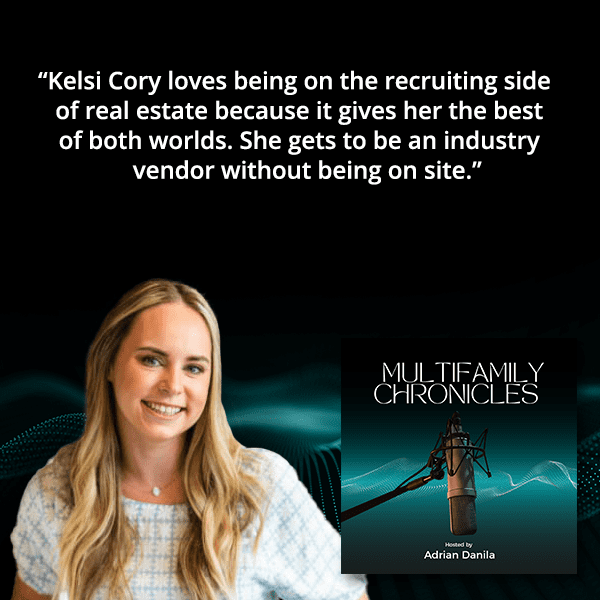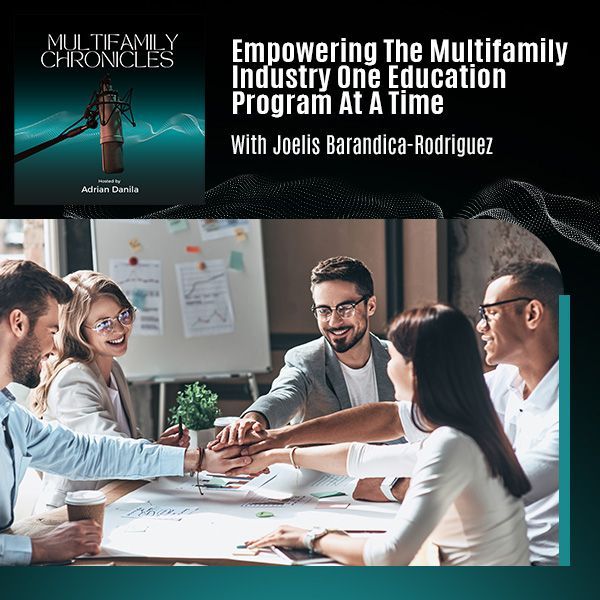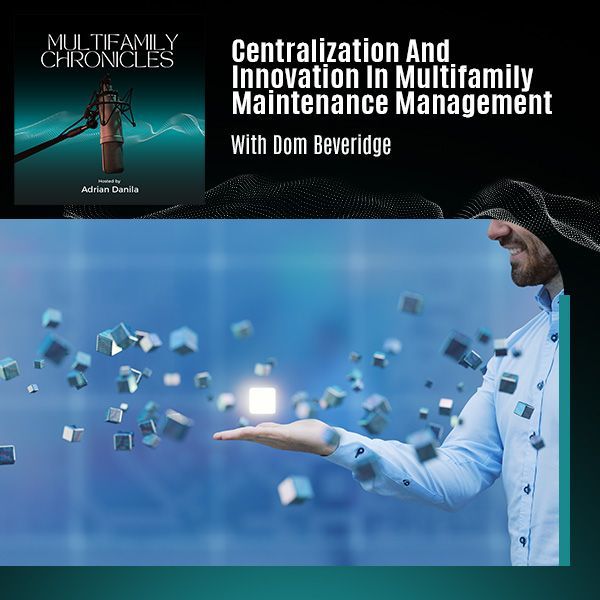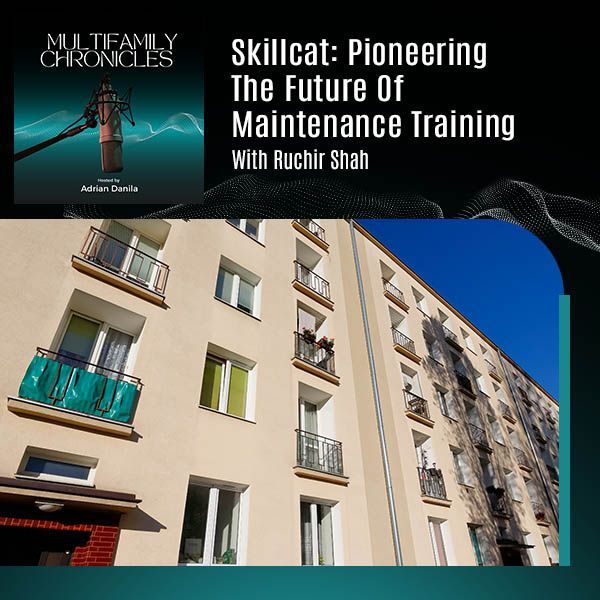Cory Executive Recruiting: How To Be A Top Performer In Real Estate With Kelsi Cory
Keep your head on the game and be a top performer in real estate. But how can you top the leaderboard in this industry? In this episode, Kelsi Cory, the Chief Executive Officer of Cory Executive Recruiting, shares insights on building high-performing teams in the real estate industry. Kelsi also shares her secret in building her business to deliver exceptional service. Get to know more from Kelsi today.
---
Watch the episode here
Listen to the podcast here
Cory Executive Recruiting: How To Be A Top Performer In Real Estate With Kelsi Cory
We are recording episode number 33 of the show. My guest is Kelsi Cory. Kelsi is the Chief Executive Officer and also the Chief Recruiting Officer at Cory Executive Recruiting. Welcome to the show, Kelsi.
Thank you so much for having me. It’s such a pleasure to finally meet you here. It’s cool to see yourself and your own journey out there too. I’m glad we are able to collaborate together.
Likewise. I’d like to start by asking you to share a little bit about your background with the audience, personal and professional background. How did you get to where you are now?
I’ll try to keep it short. Like many of you out there in the real estate world and property management, I am just the same. I fell into this industry. A fun story is I was always passionate about real estate. I loved real estate at a young age, at eighteen. I didn’t know what options were out there in the real estate industry. I had no idea property management was a thing. At eighteen years old, I knew about buying and selling houses.
Whenever I remembered I was going out on my own at eighteen to live at an apartment, I was getting toured by a leasing agent. I was like, “This seems like a cool job,” just out of high school and whatnot. Before you know it, I asked questions like, “How did you get into this?” I was curious. We were in the golf cart and everything and touring these different apartments.

At that point in time, that lady introduced me to a couple of local staffing agencies that specifically recruit inside property management. Once they made that introduction, I went in and interviewed to become a leasing agent. They liked me and they’re like, “Why don’t you come work for us internally?” That’s where my work history started.
It was right at eighteen, out of the gate, I became a receptionist at a real estate management staffing agency in Denver, Colorado, and that’s how I started my career. I fell into and found the best of both worlds of being a vendor inside the real estate space without completely being on site. That’s a little bit about the beginning of my journey.
Kelsi, why recruiting as a career and also as a business? You’re a business owner too. What made you choose the recruiting side of real estate?
Recruiting chose me. I feel like I didn’t choose to recruit. When I started my career, I fell in love with what type of positions we were recruiting in because I was so focused on the real estate aspect. I also had a great mentor and leader that I looked up to. That’s a big part of my philosophy in life. It was funny because, for the first several years, I was still wondering if recruiting would be a long-term fit for me or not. I was very entrepreneurial. Even at eighteen, I knew one day I wanted to own my own company. I didn’t know what that would be like. I would be at the bars on the weekends, talking to my friends and saying, “What business plan could I do? What can I get into? What can I start from the ground up?”
I thought recruiting wasn’t sexy enough. I was like, “There’s got to be something sexier out there.” Finally, it hit home to me that after about five and a half years into the recruiting world, I was like, “This is my gift. I’m good at it. I’m good at meeting people and learning people’s stories.” I became all-in. I realized, “What I want to do is take what I love about the industry and the business, then how I can create my own and leave out the things that didn’t make sense to me that I didn’t think were serving at the best capacity and take that leap of faith and go out and start core executive recruiting.” That was years ago to this day. At age 24, I took the leap of faith and was all in to start CER and cultivated relationships versus transactional outcomes. I couldn’t be happier to be where I am now.
Cory Executive Recruiting is cultivated around relationships instead of transactional outcomes.
I want to share with the audience that I had some direct experience with your firm, and I was completely blown away by the experience that I had as a candidate. It wasn’t too long ago. I could tell that there was something special going on out there. I want the audience in search of a new career path, your firm will be someone they will like to contact, at least have an initial conversation with. I promise that they will not be disappointed.
Thank you so much. That’s what CER is about. Even on your first call or first interaction, our biggest thing and what I love about this is having people feel seen, heard, and valued and that they weren’t just another number. In life, we go through so much motion that we forget that there’s another human on the other side that we can maybe build a great relationship with. Here we are now, this is a perfect testimony of where this relationship can go, whether it’s me or somebody on the team.
What does it take to build a successful executive reporting business? What do you think are some ingredients to make the secret sauce?
From my experience, I would say adaptability, resilience, grit, and urgency. In recruiting, you have to love urgency. If you’re somebody who likes to take your time and have all the time in the world, this is not the job for you. You have to understand that you are always competing against your competitor and the person right down the street.
You have to thrive off that high energy and be adaptable. Things are always changing in this market. It’s so similar to the real estate market in general. There’s always going to be give and take. If you are not willing to be adaptable and to go with what it needs to be and improve and evolve along the way, then I don’t know if you will truly get to where you want to go to. You might be stagnant.
For me, I’m such an overachiever. I set my goals high and don’t meet them all the time. Most of the time, I don’t, but what I’ve learned through this is if you have grit and if you have what it takes and passion. Passion is what separates so many people from just running a business to a thriving organization that’s impacting people’s lives and getting people who want to be a part of that story. That’s personally why I believe people are our product. People are everything. In our industry, there are no other tangible things in between. It’s about that. My two cents is being able to go all in and be a student and continuously learn.
I love what you said about people being the product. I will rephrase that and say, in your business, people are your real estate.

Yes, they are. They’re our real estate. From start to finish, they’re your entire transaction and the ones that are either going to make your business or business will change. People are sometimes underestimated. People can either get you to where the company wants to go or you as leaders will lose great talent because you don’t understand that it’s not about the buildings and how fancy everything looks on the outside. It’s about the people behind the scenes and the front of the scenes that are running and driving that business forward.
I used to say this very often. All management companies have assets. They have money, invest money, have resources, have the training, and have the technology. They have all the tools that they need to succeed but what’s this good core if you can’t find the people that are making proper use of those tools and the people that will make it happen? You could have the best in the world. If you’re missing the people part, you’re not going to be all that successful.
It’s so detrimental to a business if somebody doesn’t understand that’s got to be at the forefront. Tenants are people. People are everywhere, and people are, in general, what makes or breaks organizations and life. All the other things come afterward, so you’re right about companies understanding that is the most important piece.
I want to talk a little bit about what is known as the Great Resignation. I want to touch on this. You are a very important piece in the whole real estate picture and property management in the multifamily picture. You see things differently than vendors have seen or are seeing and other supplier vendors. I’d like to get your take on how you see that we got here. Where are we in the process? Are we still early in the process? Do you think this is about to be behind us? Where are we heading? How do we make things better? How do we improve? How do we solve as an industry this terrible labor shortage situation?
That’s a loaded question, and I’ll try to unpack it as best as I can. The Great Resignation is so interesting because out of 2020, there was a huge blessing that many of us experienced. Many of us had to center ourselves as individuals, as people in our families, as our friends, as our communities, and as our work. Work, I always say, is the second biggest thing a part of your life. Your family and friends are first, but work is very integrated. You usually spend 40-plus hours easily a week, if not a lot more with those people in your life.
There was a huge evaluation of what was missing. We got a taste of it through 2020. I don’t think it’s behind us. We’re just started of this whole new trend. It’s not even a trend. It’s just a new way of life. It’s a new perspective. It’s a new lens. It was like we shed what was that old tradition of how we carried that up to this point. In some way, I feel like the universe had to shake us and say, “Let’s take this opportunity and evaluate what matters.” It’s going to be here for the future. I don’t think it’s going anywhere, and I don’t think it’s a fad. I don’t think it’s like a moment in time and people will come to their senses. People recognize.
I always encourage them like, “Figure out what matters to you because what matters to me might not be the same as the person next to me.” At the end of the day, what I do know is that the Great Resignation has changed how we operate as businesses, how we operate in our community, and what’s important. I honestly feel like people are a lot happier and fulfilled because they’re finally experiencing this different landscape out there and these different opportunities that are finally becoming more adaptable.
Figure out what matters to you because what matters to me might not be the same as the person next to me.
I always say the companies that are not willing to change and adapt and evolve, there’s plenty of companies out there. They’re like, “No, we want to stick to our ways. That’s how we’ve been able to build the business for the last 30 years. This is the way we want to go immediately back in, having everybody report to the office and all these different moving pieces.” The reality is everybody has a choice, but sometimes, those choices come with some serious sacrifices. This is the time when we all can learn, can become students, and can try new things.
It doesn’t mean that this new school version is necessarily the only way, but there’s so much there. It’s not going anywhere. I’m a big believer that it’s cool to witness this and to be a part of this because we talk to people every single day. There’s a lot of continuity across the board about what matters to people now.
I happen to be of the same opinion. One of the good things that came out of this whole lockdown and COVID situation was that we got to spend more time with our families, loved ones, and friends, and we learned that we like to do that more than we used to. We don’t want to give this away and go back to the old ways of doing business. There’s another thing that happened that I’ve seen as a component that may be coincided but I don’t think it 100% coincided. It’s something that’s adjacent to the lockdowns and COVID and everything.
The gig economy has exploded because people are at home. They wouldn’t go out to eat. They’ll order Uber Eats or use other services. Also, they would use people that do this as a gig. You want to work, you are going to flip the switch on, and you’re available to drive as an Uber driver. If you’re tired and don’t feel like doing it today, you just turn the switch back off and go to your own life, then you work on the basis. You don’t have any bosses. You’re own boss. That’s very tough competition for most businesses.
Most businesses don’t have this business model. They can’t afford to tell people to work when they want or work from where they want. They don’t have. You have to physically be there. In order for those businesses to compete, they had to change. They had to improve their offers. I strongly believe that those that choose to do nothing and wait, hoping that things will go back to the old normal are going to be in for a lot of pain. They will lose a lot. They’ll end up with a lot of B and C players. Once they’re moving, they’re making any type of moves. I’m not saying gray moves. Any moves are better than no moves at all. They’re going to end up with better players. What’s your take on this, Kelsi?
Those are very good points. What is cool about the gig economy is people now have so much more autonomy. They have so many more options. Technology is changing all the time, and everybody’s needs are always changing. We were so conformed for so long like, “This was the only way.” You get out of high school, go to college, and find your lifelong career. The reality is, that worked and that was very successful for a very long time.

There’s nothing wrong with that. Now, we’re entering into a new era where the roadmap is different. It’s important to embrace, accept, challenge, and allow people to say, “You want to go left, right, or straight.” There are so many more options now that are readily available. People are now trying to taste all these different options out there and say, “Ten years ago, I might have never thought I could do this, or I wouldn’t have even imagined that this would be available to me.” Kudos to all those people who are going out of their way to try new things and not listening to society and going and seeing what works for them. With companies and organizations, it’s what matters to them.
If you want to keep things average, keep showing up every day, hoping for the best, not willing to continuously be a student, and you’re checked out, that’s okay. That’s a choice that you’re making for your organization and as leaders, but those A players or those people who are like, “I want more fulfillment,” many organizations can provide that and collaborate with their own team to learn what that would look like and do trial and error, beta phases, things like that.
You don’t have to be married to these new ideologies that are coming out. It goes back to trying new food. I know what I like, and I always want to get that one item wherever I go. My husband’s always like, “What if you tried this new thing on the menu?” You were very impressed, and now that’s something new that you wanted to add.
It’s so similar to organizations. I don’t think it’s a matter of getting rid of all the things that set you up for success now. Be willing to continuously learn and listen to the people in your organization. They will tell you, “You don’t have to take that responsibility on and know that all yourself.” You’ve got all these amazing human beings who have different gifts and talents, so use them. That’s what people want. It’s continuously being adaptable, being in the status quo, going forward, and seeing where it takes you.
It's not a matter of getting rid of all the things that set you up for success today. Just be willing to learn and listen to the people in your organization continuously.
I couldn’t agree more. There’s so much value in asking your front liners out there, “What’s their opinion?” They’re the experts. If you’re up at the corporate level, you’re probably not an expert in many of those things that happen on the ground. Ask the people all around, and they’ll tell you, “This is how you learn.” I love that you keep bringing up being a student. I’m of the same type of mindset that I’m a student of life. I always want to learn. That’s one of the reasons why I started a podcast because I could get so many successful individuals like you who share their life experiences, wisdom, and so many great things that make me a better person having those conversations and just learning. It’s an ongoing process. It never ends.
You’re 33 episodes in. That’s huge. You’ve had the opportunity to speak to 33 different conversations and look how much you’ve probably grown as well see people on the receiving end too. Kudos to you because you’re living out what you are trying to educate and allow other people to be exposed to. You are doing that yourself. You’re being autonomous. You’re going for it. You’re trying something new, and I admired that about you.
Thank you. It takes a lot of effort. It’s not an easy thing. I get questioned always if I get to sleep. I do get to sleep enough 6 or 7 hours a night. It’s what I need, but it’s not what people think about how much sleep you get. That’s important that you get it, but if you sleep 7 hours a night, the day has 24 hours, so you have 17 hours left. The question is not how much you sleep. It’s about what you do with the seventeen hours when you don’t sleep.
In all reality, you could do a lot. It’s a matter of choice how you choose to spend the seventeen hours that you’re awake every day. I’m making my own choices. I say that they’re for everybody. They’re not easy. Sometimes they go against my default mode. I have to kill that default mode, get up at 4:00, walk for an hour in the neighborhood, and do all the things that I do.
It’s a matter of choice. Nobody’s pushing me. Nobody’s forcing me to do anything. Everything is strictly free will. I try because why the heck not? Why not? We only have this one life, and I don’t want to look back and say, “I have regrets that I wish I would’ve tried.” I want to try everything that goes through this. I want to try everything and see what sticks and what doesn’t stick. We learn. It’s not about winning or losing. It’s about the experience.
Kelsi, I wanted to ask you a question about candidates. Let’s say they are a client and have a set budget. They give you a budget. Let’s say my budget has a range. It’s $120,000 a year. That’s the base salary plus other benefits and whatever. Let’s go to the base salary. You then find the candidate that fits the profile. You know that there are great candidates.
The challenge that you have when you present a candidate to the client is that they’re not within that range. They want maybe $135,000. That’s their price for base salary. Do you find this easy to present to the client? Do you even present it if it’s like a $15,000 difference on their highest range that they intended to pay, or you are saving them for later and saving the candidate because of that gap in salary? How do you typically proceed in a situation like this? What’s the typical response that you’re getting?
This is a very important question, and this is what separates those who are very good at their craft at recruiting and those who are just learning or who might be taught a different way. It’s my job to find you the best type of leader. There are barriers, and here’s the box. That’s just an idea or a benchmark, but where you stand out compared to a lot of the different recruiters out there is your willingness to go outside that box and say, “This candidate and all the moving pieces and years of experience.” Most of the candidates we present are going to be at that conference.
It would be negligent of me to not give you the opportunity to see what is out there. Here’s where we’re at. I’ll allow you to still make that decision, but I’m not going to withhold that candidate if, on my gut, I’m like, “This is the one,” like I feel very confident. Many people are taught and trained to be job order takers like, “Yes, ma’am. Yes, sir.” They’re afraid. They’re like, “This is the parameters they gave me. These are the expectations. This is the money. I can’t go outside that box.” I got off the phone with a great candidate, but they don’t meet everything in that box.
I encourage my team that it is just a benchmark. Where you’re going to be exceptionally good at your craft is in the field, in the market, understanding who your client is, understanding what this candidate brings value to, and still making that introduction possible if that’s what makes sense. Now, it’s not saying that we want to push clients to always pay more money, but sometimes, you don’t know what you don’t know.
If I was able to provide you with somebody that was $10,000 over but that was the most exceptional that is going to make a difference in your organization and match everything and above, would you allow that $10,000 to still be searching for the next three months because you weren’t willing to figure out a way and find a solution that made sense?
There are many recruiters out there that will not do that. It’s a shame because, you as the client, that is our job. That’s why you hire us. That’s why we partner together because it’s my job to be able to find you that gem, that unicorn, or that ideal candidate and overdeliver what that looks like. With compensation, if you are providing that value and an educational piece and why you feel this candidate might be a strong match, most of the time, our clients are very understandable and are going to find a way.
Once they meet them and they go through those interview rounds and they already have buy-in with them as well as the candidate, they will find a solution to make it work. I seldomly had anybody get off the phone and say, “They were perfect for the job, but I’m not willing to find that money. Let’s keep hunting.” That gives me pause when I find a client like that because it’s like, “What can we find solutions to?” Now, if we’re talking $50,000 above, there’s always a health part of where I want to present candidates.
If they’re way out of comp range, that’s another story. We’re talking about a $15,000 difference. Most of the time, clients will say, “I’m so glad you still presented them because I probably would’ve had my blinders up and thought this is the only thing I can find in the market.” Clients are very much more adaptable, especially ever since 2020 now that the market is constantly changing and the demand and needs are always shifting.
If you want those top players, you have to find a way of how. It’s not even just comp. It’s culture. There’s so much more that goes into all the total package. Clients are very flexible, and they will listen, but you have to show and earn and get that opportunity to partner with them and not be job order takers. That’s on you. That’s your responsibility.
It was very interesting to hear your take on this. Especially recruiters and executive recruiters, I ask them all the time. That seems to be a trend. They’re still presenting. Even if the candidate is higher priced than the initial range, they’re still wanting to present them and give the plan opportunity to say no if they decide that they do not want to pay that larger amount. That’s fine.
One other thing that I’m seeing happening in the market a lot is that current employers are making counter offers. When someone gives notice, they find a different opportunity and counteroffers. I wanted to ask you. Do you have candidates that you’re representing that are taking our offers and decide to stay with the current company? What would be the percentage you would say roughly of people that decide to stay and end up with a new opportunity?
I can speak from my experience. I would say about 30% are going back, going through the entire interview process, and thereafter, accepting their counter with their current organization. I saw that shift in 2021. In the 3rd and 4th quarters, that’s when I saw the dynamics changing. This is a good conversation. Something that I personally think is, “Where did this come from?” It’s not that counteroffers never existed before, but why is it becoming so prevalent? Why are you asking me this question? It’s because it’s a real thing happening in the market nowadays.
Personally, I’ve thought about it. After 2020, a lot of people went through a lot. There were a lot of changes, a lot of uncertainty, and a lot of people who are with organizations, whether they’re there forever, for many years, or the newest person on the block. There’s some PTSD. I do. I think people are afraid. They’re more afraid to accept new challenges. They’re more afraid to go for it. They’re more afraid than where they were before. They’re, in some ways, choosing comfortability over going for the opportunity. Something I’ve witnessed is where that shift takes place.
I might be very controversial with this topic, but this is my observation. People got let go, and lots of moving pieces happened. Businesses were shutting down left and right. People who were able to stick it out with that group or that organization went through a very traumatic experience with their loved ones, family, and communities, who all lost jobs, who also got sick, and who companies were literally closing their doors. They’re holding onto this idea. At one point, they were a lot more open-minded to taking calculated risks. Now, I believe they’re choosing to stay where they are.
That’s one component. The other component with counteroffers is every time I get on an interview or a call with somebody, I want to know what’s your motivating reason to get on this call with me now. Why are we here? Why are we talking? There’s something going on. It’s like, “I’m open to hearing new opportunities,” but let’s dig deeper. My job isn’t here to sell you anything. I want to get to learn what motivates you, what is going on in your world at work, and if they’re happy. I always say there are the four Cs that I live by.
I will say 2 or 3 of the Cs have to be compromised in order for it to make sense for you to make a change. If it’s less than two are not being compromised, then I usually will do the right thing and say, “You have a good opportunity. You should stay where you are.” The grass isn’t always greener on the other side, and I’ve told many candidates that. You have a great opportunity where you are, so it makes sense for you to stay.
The four Cs that we live by here at CER is Commute, Culture, Compensation, and Challenges. To break that down, commute luckily has been eliminated for a lot of different opportunities. People have been able to work from home or have a hybrid schedule. Culture is everything. That’s a topic that’s very hot and will continuously be very important. Compensation is also a very important piece for a lot of people, but I would say challenge as well. What I mean by that is if you feel stagnant or you don’t feel like you’re learning or being challenged as a leader to continuously learn and you know that’s important to you, they will leave.
I always say, “Why are we on this call today? What is your motivating reason?” If those four are not being compromised, you as the executive recruiter should identify, “Why are we moving forward in this process? There’s not a lot of motivation for this person to leave.” Most of the time, there are three of them being compromised, and they’re like, “I need to get out of here. This is not a good work environment for me. It’s not aligning with my values.”
Those can’t fit. You’re like, “This opportunity makes sense for us to move forward.” Those candidates typically tend to not accept counters because they’re already all-in with getting out of that organization. Every time when there’s a counter and somebody accepts it, a year later, they come back every time and are like, “Now I’m ready to leave.”
What happens is we’re more skeptical then because when you go all-in and you get an offer with our client or something, then you backed out blindsided in some sense and now you want to come back a year later, it’s a little difficult because you have to keep that in mind of, “What is going to be different about this situation, or what did you learn this last year?” instead of taking comfort or what you already know just for more money. There are so many moving pieces with counteroffers. That’s just one perspective. There are many perspectives, so I wouldn’t say I’m totally against them, but I can see a totally different perspective in my seat.
I like how you build your process to lower the possibility of people accepting counters. I don’t think there’s, at the end of the day, anything wrong with it. It’s an experience. You don’t want to put in all the work to present a candidate and get an offer, get everything set up, and someone is changing their mind because they had real reasons why were they looking in the first.
I like your process a lot, asking the questions to lower that percentage right there. Kelsi, what would you say are your number one or the main reasons for candidates to put themselves on the job market and look for opportunities? What are you hearing as the top reasons for them to search for new opportunities?
Every single, it’s culture. Culture is the number one thing. It’s not money, not commute, and not being challenged. It’s always culture and having maybe a toxic leader within the organization that’s affecting their mental health or not having autonomy and the ability to feel empowered to do your job, to be hired to do what you were set out to do, and be limited with that. Culture is the number one thing from the most entry-level to the most top C-level suites.
I get that comment almost every time I’m on a call, “I wish this job would work out, but the culture is not in alignment,” then we dive in. We dig in, “What’s going on there? Help me understand what is it that is motivating you on this call now?” Culture is such a big topic that sometimes people can minimize what culture is like getting drinks with friends at happy hour, but that’s maybe one perspective.
Culture is so much more than that. It does have to align with who you are as a person to be able to thrive and be successful. There are many organizations out there that are still figuring it out. There’s never going to be a 100% perfect company. If the day you start thinking there’s going to be a perfect company, I still have yet to meet one brand. Even CER is not the perfect company. We are constantly learning and growing. It’s understanding what organization you align yourself with, what you are willing to accept, and what you are willing to no longer tolerate. Toxic leadership is probably the biggest component.
At the C-Suite, I always say there’s usually one toxic leader sitting up at the top that we’ll always find. It will either be the detriment of your business if you don’t figure that out, or it will be the biggest success of your business if you are willing to get in, dig in, figure out where are the loopholes, and what can we work on.
That’s a very amazing perspective. Culture is not something they build then you are done and you go on vacation. Culture is an ongoing thing. As you said, we’re not perfect. You mentioned your company. You’re not a perfect company. No company out there is perfect, for sure. A culture is a living organization because probably the best definition that I found about culture is that it’s the sum of all employees’ behaviors.
When you build culture, you are seeking a certain type of behavior. The way you build that, in my opinion, is that you are incentivized in the type of behavior that you want to see your employees. That’s from my employer perspective or a leadership perspective. From an employee perspective, they have choices. They’re looking at, “Am I part of what they’re trying to build here? Do I want to be part of this, or this is not for me?” It’s okay for you to say, “It’s not for me.” It doesn’t have to. I work for companies that have amazing cultures, and I work for companies that have a not-so-amazing cultures, but ultimately, it was still my option.
To go back to what you said, people have PTSD. I speak offline with a lot of individuals that are unhappy at their current job. I tell them like, “Nothing stops you,” especially now. Based on the Department of Labor reports, there are over two jobs available for each able-bodied person. We’re not talking about each qualified person. Those are each person that’s able-bodied that could move around and do certain things. In a situation like this, nobody should be worried. Finding opportunities, why they’re worried? I understand. You mentioned all the reasons.
They had that in the past happening. They see their family suffering, so they don’t want to take this leap of faith and try the new. This brings me to my next question, Kelsi. We have a labor deficit. As I said, each person that’s able to work has two jobs available out there waiting for them. How does this affect your business? Is it easier for you to do business with your clients? Does it make it harder? How did this change the dynamics versus when you first started years ago?
Recruiting is never easy, and I don’t think it ever gets easier. Recruiting in general is always hard. There are always challenges. It’s either a candidate market or an employer market, so similar to the housing market. It’s either the buyer or the seller. You are constantly in this shifting zone every few years of back and forth. That’s where adaptability, grit, changing your techniques, changing your different approaches, and evolving are what it’s going to take.
Now, the challenge is people have much higher expectations of what they want, and I think people are no longer settling. That does make things harder. It challenges you to be able to identify a culture match. It’s no longer about qualifications. It’s no longer just doing these box checks on the company then also for the candidate. We’re looking for that energy and synergy. What leader is going to be reporting directly to this candidate and vice versa? What role are they going to be playing?
Culture, again, is still what is the biggest challenge and will continuously be a big challenge for recruiters. You have to understand the company you are representing and the brand and partnership as much as you have to understand the candidate’s needs, desires, and end goal of what they want to accomplish. That’s always going to be a difficult thing to navigate through because it will require you to put in more work and time to listen to those stories.
Culture is the biggest and will continuously be a challenge for recruiters. You have to understand the company you represent as much as you have to understand the candidate's needs, desires, and end goal of what they want to accomplish.
Every recruiting firm is different. There are a lot of staffing agencies or different industries in general, the tech space and healthcare, and all these different factors that it’s very transactional. It’s very much, “We got this job in. We got to fill it. Let’s just get enabled body.” CER is so different. We spend hours learning about our candidates and clients. That in itself is always going to be a challenge because you’re always going against time. Time is something that you don’t get back. That’s a good question. It’s always going to be a challenge in the recruiting world no matter what landscape we live in now.
Kelsi, I’m going to ask you now to share with the audience the wildest, craziest situation or story that happened to you as a recruiter, the oddest situation that you had with a candidate or with a client.
I have a lot of crazy stories that happen, especially in my old days. Talk about learning how to solution-seek in a very short timeframe. You’re like, “This situation isn’t going as planned.” There was one that happened that I thought was pretty funny. Even though it didn’t happen to me directly, it is still a recruiting story. One of my executive leaders, clients, or candidate went back into the market, looking for a new opportunity and confidentially. It was funny because the position he was applying for is very high level. He, unfortunately, had to let go of somebody, a regional manager on his team.
They both work for the same group. They both have the same name. The person he was supposed to interview in a different state was supposed to get that all coordinated and set up. Needless to say, the same candidate in that regional ended up applying for the job. There was some miscommunication. They invited him in, did the whole interview process, and they’re finally ready to make an offer.
Finally, the other leader was like, “I haven’t heard from you folks in a month or so. Are you still interested in me?” They’re like, “What are you talking about? We’ve been interviewing you this whole time. We’re ready to make an offer.” It happened to be a totally different person underneath that leader who let him go.
He is like, “You can hire the both of us.” At the end of the day, they literally didn’t connect the dots that there were two completely different people. I thought that was pretty hilarious, and they ended up making the offer to that regional to have them join their team. There are always these crazy stories that you’re like, “How did this all happen? I guess it’s a fake thing.” Who knows?
That’s an amazing story and very entertaining too. I hope it worked out for both at the end of the day. Kelsi, what are the top complaints from your candidates, the ones that you represent, regarding the recruiting process that they’re going through typically or in general? What are the top complaints?
I always say time kills all deals. It’s the time. There are not enough companies out there, and I hope that this will continuously be an educational process, a shift, and a change that if you are taking 3 to 4 months to make a decision through an interview process if you think that is the one candidate you want to join your team, it’s too late.
That candidate already has 2 or 3 offers on the table. No matter what psychological buy-in or how good we are at our job, if you are not able to make an executive decision and come to a yay or nay, “Let’s go all in. Let’s pass on this candidate,” you’ve already lost them. The one piece of advice that I would tell any organization out there, whether they partner with CER or not, is to get very intentional about your recruiting process. Be efficient.
That doesn’t mean you have to compromise what it is that you’re looking for or feel rushed. You have to get laser focused. I always say that about three interviews are the maximum based on the level of opportunity and whatnot. Get very methodical about what that looks like. We at CER like to give a bird’s eye view, a high level, of what a candidate can expect so that they are also involved in the process. They’re not constantly like, “I don’t know where we left off. I’m not sure what the next steps are. Are we setting seven interviews or one more interview? Are there assessments in the process?”
They need to also be educated in that process so that they’re all in as well. Honestly, time kills all deals. That’s the number one complaint. People don’t like the feeling that they still have to continuously prove their value when there are two other companies that gave them a hard offer letter and said, “We want you.” It doesn’t matter how great your brand is, how great your culture is, and how amazing the impact is. If you cannot make a decision, that is your culture. That means there is something going on with your leadership team that you folks are not empowered to make decisions.
I’m going to say this. If you’re not making quick decisions regarding recruiting, you’re not that great of a brand. You are not that great of a brand that you think you are. Be careful when you buy into your own Kool-Aid because, at the end of the day, the candidate’s perception is their reality. At the end of the day, it doesn’t matter what you think. It matters what they think. With opportunities being so many out there, you got to be the one hurting most likely more than they are.
It’s the biggest thing that I cannot vocalize enough. You’ve got to figure that process out.
Here’s the last part of our conversation. I want to go to a very few rapid-fire questions. Ready?
Yes.
What is some piece of advice that you would give someone ready to enter the real world? They’re finding a job. They’re finishing high school or college and out in the real world looking for an opportunity. What is one piece or a few pieces of advice that you have for them?
Find a mentor. That is very underutilized. Find somebody in a seat that you admire and respect in all aspects of your life. In your career, find somebody that you’re like, “I want to hunt you down. I want to spend every waking moment with you. I want to learn all the wisdom of how you got to where you are,” and go for the opportunity. Many people think, “I don’t know.” You have to go for it. You have to be willing to do that. That, for me, was my education. I always, throughout my life, found mentors in every single aspect.
Even through kindergarten all the way to where I am now, I surround myself with people who are a lot more knowledgeable, more experienced, wiser, and a very singular aspect. That is how I gained my education. It is through mentorship. I highly encourage anybody entering the workspace, into the real world, to find mentors. Even if they’re not the best mentor, you’re still going to learn something. You’ll still learn either some good qualities or things you’re like, “I don’t know if I’m going to take on that approach but I’m glad you still taught me it.”
I love it. Model the masters. You look at the people that have already been where you want to go and you follow the trail. It’s not that complicated. What are your favorite books? It’s either fiction, non-fiction, or professional books. Tell us the title.
I love Good To Great. That was a big book that contributed a lot to CER formulating what we can be great at. I love anything with Simon Sinek. He’s one of my favorite people, the thought leaders that I admire. I also love mysteries. I’m reading one now. It’s good. I have the creative side and the work side. I try to balance it out, especially with work being so consuming. I try to enjoy some more creative stuff now so I can have an outlet that’s healthy for me. I love Good To Great and The Energy Bus. There are so many good books out there.
Next one, how did the failure or an apparent failure help you set up or build future success?
Getting the right people on the bus is something. I don’t know if I’d call it a failure, but it’s an opportunity to learn of, “As a leader and a growing leader, what people need to be on the bus and what people have to get off the bus?” and understanding, taking action, and being continuously a student and not being so upset with yourself.
People are the most challenging thing in businesses. People management is hard, but even as a recruiting firm, people are a product. That doesn’t mean you’re necessarily a master at understanding people. That is a big lesson for me, and I’m continuously learning that. It is finding those types of leaders that I want to join this journey and people who might not be the right fit at this time.

In the past 3 to 5 years, what new belief, behavior, or habit has most improved your life?
Boundaries are super important. It’s setting yourself up for success and understanding what is it that you need to feel recharged and re-energized so you can be the best when you’re on these calls or you’re engaged with anybody. What is it that you need to fill your cup back up? For me, I have had to learn the last several years and will continuously learn that what I need is going to be different than the person next to me.
There’s no right or wrong. It’s staying true to yourself. I’m not an extrovert. I’m a social introvert. I’ve taught myself that I would be an extrovert, but I’m an introvert. Whenever I’m done with work, I’ve learned that it’s okay to not be on and to be completely social and engaged. Sometimes, it’s nice to observe, listen, and just enjoy the conversations and not be spearheading the conversation. That’s something I’m continuously learning and growing. I don’t know if I’ll ever be a master of it, but it’s something I’m learning now.
When you lose focus or you’re feeling overwhelmed, how do you get back on track? What type of things do you do to get you back on track?
Tennis is a great outlet for me, so I’m always on the courts at least five times a week. I’ve got into pickleball, so that’s another great outlet. For me, it’s being active in doing something that doesn’t require a lot of mental capacity and going out there and getting the energy and running around. Also, for me, I like to talk things through.
I would call my very top two people in my life at that time, whether it’s my business coach, my mentor, or my husband, and say, “Can I please have a moment to talk out loud about what I’m going through now so I can get it out of my head, put it out there, and let it go?” That’s something that’s worked for me personally.
Kelsi, thank you very much for taking the time to join us here. In closing, I’d like to give you the opportunity to answer questions that I didn’t ask or to speak about something that you’re very passionate about that we didn’t have the opportunity to cover during our conversation. Also, leave some contact information for the show audience to contact you if they want to reach out to you.
This resonates throughout this entire conversation but can’t stress it enough. I’m very people-focused and relationship-focused. At the end of the day, if you’re looking for somebody to care about your business and care about you as a human being and what you are looking for in your next opportunity or who you want to join as your team, relationships are so crucial and cannot be sidetracked. They can’t be the back burner.
Something I cannot stress enough is relationships are everything. Your network is your net worth. It speaks volumes at work and outside of work and in your own community and life. That’s one thing I can’t ever stress enough about CER and the vision. We’re very refreshing and authentic, and that’s super intentional.
We’re showing up as who we are and there’s none of this fake corporate like, “Let me put on my work, Kelsi,” and when I’m off this call, I’ll be just normal Kelsi. I’m trying to show that you can be who you are. People love and want that. They want the uniqueness that you bring. If you want to get ahold of me, feel free to send me a direct message on LinkedIn. You can also reach out to our office or anybody on our team. All of us here are phenomenal, and we would love to hear your guys’ stories out there. I can always share our email address and our phone number as well. Follow us on our company LinkedIn page at Cory Executive Recruiting.
Again, thank you so much for coming and for taking the time to come speak with me right here and to share a lot of great insights with the audience. I hope to get you back here soon. I always invite my guests to return if possible. I love to have a follow-up conversation because there’s still so much to talk about when it comes to recruiting. There are so many things that are changing in the world. Recruiting is affected by it. It’s not an exception from those. Thank you very much for being here with us. We’re wrapping up episode number 33. Have a great day.
Important Links
- Cory Executive Recruiting
- Good To Great
- The Energy Bus
- LinkedIn – Kelsi Cory
- Cory Executive Recruiting – LinkedIn
About Kelsi Cory






